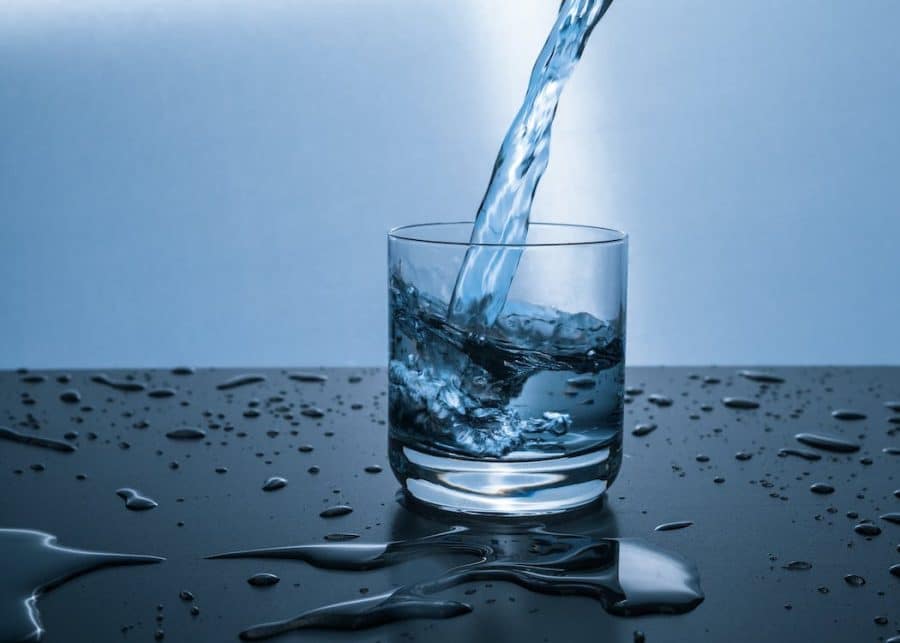The drinking water at Camp Lejeune, a United States Marine Corps base, was contaminated with toxic chemicals for several decades, exposing service members, their families, and civilian employees to health risks.
The contamination was caused by industrial activities and waste disposal practices on the base, which released chemicals such as trichloroethylene (TCE) and perchloroethylene (PCE) into the water supply. As a result, many people who lived at Camp Lejeune during the years of contamination have suffered from a range of health problems, some of which have taken years to develop.
This article will focus on the long-term health effects of drinking contaminated water at Camp Lejeune. It will also address the challenges of diagnosing and treating these health problems and the need for ongoing research and monitoring to understand the impact of the Camp Lejeune contamination on the health of those affected better.
Cancer
The symptoms of Camp Lejeune water contamination include different types of cancer, such as leukemia, lymphoma, multiple myeloma, kidney cancer, and liver cancer. Studies suggest that individuals who consumed the contaminated water for longer periods are at a higher risk of developing cancer.
According to TorHoerman Law, LLC (THL), a law firm that handles Camp Lejeune lawsuits, individuals may have been exposed to harmful chemicals due to prolonged water supply contamination. The law firm suggests that the health effects of this exposure may take years to show up and can have a significant impact on those affected.
Birth Defects
Camp Lejeune Claims Center states that the contamination of the drinking water at U.S. Marine Corps Base Camp Lejeune posed a significant risk to pregnant women and their infants, according to a report from the Centers for Disease Control and Prevention (CDC).
The report found a connection between the contaminated water at Camp Lejeune and severe birth defects, including neural tube defects (NTDs) such as anencephaly. Studies also suggest that there is an increased risk of cancer and oral clefts among infants whose mothers were exposed to the toxic water.
The risks of birth defects in infants may have been heightened by prolonged exposure to contaminated water. The impact of these chemicals on fetal development can have long-lasting effects on the child’s health.
Reproductive Issues
The reproductive systems of men and women exposed to Camp Lejeune toxins may experience problems.
For men, this includes decreased sperm count, altered sperm morphology (shape), and testicular cancer. Women may experience menstrual irregularities and fertility issues.
Immune System Disorders
An immune system is a group of cells that protect the body from infection and disease. Exposure to toxins at Camp Lejeune has been linked to several immune system disorders, including lupus, rheumatoid arthritis, and multiple sclerosis.
Neurological Disorders
Neurological disorders, such as Parkinson’s disease and amyotrophic lateral sclerosis (ALS), are common among veterans stationed at the base.
According to Medical News Today, Parkinson’s disease [mfn]https://www.medicalnewstoday.com/articles/cleaning-chemical-tce-may-cause-parkinsons-disease[/mfn] affects over 8.5 million people worldwide and causes movement issues and cognitive problems due to low levels of dopamine and norepinephrine. Although the cause is unknown, certain risk factors increase the likelihood of developing the condition.
Researchers at the University of Rochester have now found a link between Parkinson’s disease and the chemical trichloroethylene (TCE) found in Camp Lejeune water, adding to the growing body of evidence on the topic.
Liver and Kidney Damage
The long-term health effects of drinking contaminated water at Camp Lejeune may include damage to the liver and kidneys, which can lead to liver disease and kidney failure. Many people who were exposed to toxic chemicals during their time at Camp Lejeune have developed some form of liver disease or kidney failure.
Respiratory Problems
Some individuals exposed to Camp Lejeune’s toxins may develop respiratory problems, including asthma and chronic obstructive pulmonary disease (COPD).
The long-term effects of these illnesses include:
- Shortness of breath.
- Chest tightness or pain in the chest when you breathe deeply or cough.
- Wheezing or whistling sound when you breathe out.
Psychological Effects
Exposure to toxins at Camp Lejeune can cause psychological distress, including anxiety, depression, and post-traumatic stress disorder (PTSD). These effects may be a result of long-term exposure to the chemicals.
Challenges in Diagnosing and Treating Health Problems
According to Drugwatch, the problem of Camp Lejeune water contamination is associated with individuals who were present on the base between 1953 and 1987. Roughly 900,000 individuals were exposed to hazardous drinking water, which contained toxins like benzene and trichloroethylene. This group comprised active-duty military personnel, their families, Army Reservists, National Guardsmen, and civilians residing in the surrounding area.
Diagnosing and treating health problems caused by exposure to these toxic chemicals can be challenging. This is because the effects of such exposures may not be felt for years or even decades after the exposure.
In addition, diseases that result from chemical exposure may have symptoms similar to other illnesses, making it difficult for doctors unfamiliar with these conditions to identify them early on.
Because of this difficulty in diagnosing and treating these conditions, ongoing research into their causes and long-term effects is needed so that exposed people can receive appropriate medical care as soon as possible.
Need for Ongoing Research and Monitoring
Due to the potential long-term health effects of exposure to contaminated water at Camp Lejeune, there is a pressing need for ongoing research and monitoring. Research studies can help in understanding the full extent of the impact of toxic chemical exposure on the health of individuals who consumed the contaminated water.
This research can also aid in the development of effective treatments and preventative measures for those affected. It is essential to continue monitoring the health of individuals who were exposed to toxic chemicals, as some health effects may take years to develop.
Conclusion
In conclusion, the contamination of the drinking water at Camp Lejeune has had long-lasting impacts on the health of individuals who lived on the base.
The lessons learned from Camp Lejeune should serve as a reminder of the importance of environmental safety and the need for ongoing vigilance in protecting the health of military personnel and their families.





